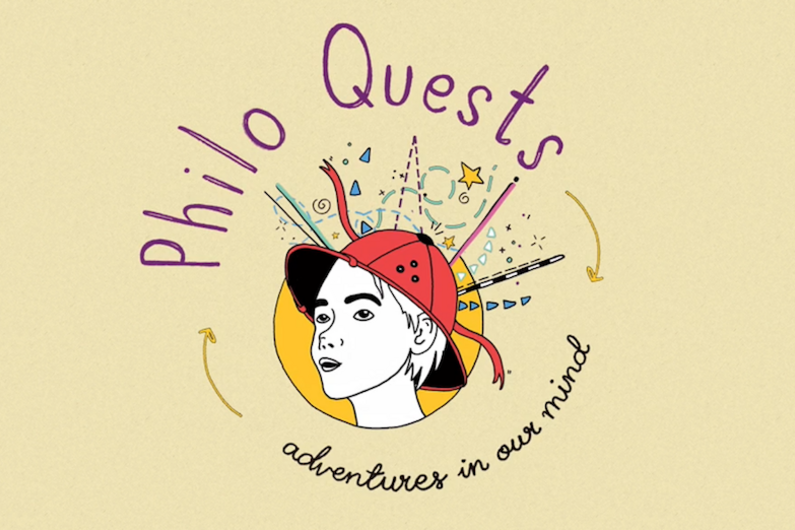Making philosophy accessible to young people
- Salle de presse
05/07/2020
- UdeMNouvelles
PhiloQuests, an interactive project of Université de Montréal’s Institute of Philosophy, Citizenship and Youth, is now online.
The interactive project PhiloQuests, which allows young people to carry out playful reflection activities and better understand the emotions they feel during confinement imposed by COVID-19, is now online.
Developed by the Institute of Philosophy, Citizenship and Youth of the Faculty of Arts and Science of Université de Montréal, the site includes more than 100 free activities for children aged 7 to 12.
These activities cover nine themes: creativity, loneliness, boredom, loss, resilience, worry, hope, mutual aid and change. Each theme includes 12 activities that draw on the classical pedagogy of child philosophy and the innovative approach of a relatively new domain: philocreation.
What’s that?
“It's the joining of the forces of creation and reflection that offers the possibility of creating imaginary scenarios to better understand today's world," said project leader Natalie M. Fletcher, whose team includes Léa Cossette Brillant and Baptiste Roucau.
“For example, it allows concepts such as resilience, loneliness and hope to be transformed into living creatures,” said Fletcher, an associate professor in UdeM’s Department of Philosophy and the Institute’s scientific coordinator.
“Children can then ask themselves how these creatures would act if they were with us, what their feelings would be, and so on,” she said. “This is a great way to help children understand the world they live in. Philosophy suddenly becomes accessible.”
Pre-schoolers and teens, too
The project was designed in a playful spirit in order to approach philosophical concepts through play and thus make them accessible, said Fletcher, adding that versions adapted for preschoolers and teenagers are also available on the site.
The 108 activities can be done at home, alone or with the adults the children live with. A guide for accompanying adults is also available on the site to help children embark on philosophical quests and to support them.
Children can choose the theme they wish to explore, whether because they feel a need to ease their worries or because they are curious to find out what boredom is all about. Everyone, too, is free to do the activities, alone or online with friends.
“The project was organized to give structure to the children and accompany them throughout the day," said Fletcher. “But they can also do an activity here and there, depending on what they need and want.”
The idea of having structured days is especially important during confinement, she added.
“Children no longer go to school, their parents work at home: it's easy to lose your bearings when you no longer have a fixed schedule. So we thought it would be good to include breaks for playful thought at lunch and dinner so that the kids can get back into a routine.”
New examples to be added
PhiloQuests also promotes online exchanges so kids can share their thoughts and creations when in not in close contact with others, making it easier to maintain social relationships despite social distancing.
"We hope to be able to add examples of projects carried out by young people for each of the activities and share them on our social networks so that other young people can see what has been done,” said Fletcher.
"At the Institute, the aim is to train children's thinking from the age of three until the end of university,” she said. “The idea is to get young people to think by engaging them in collaborative dialogue."
It was Fletcher who first instigated serious research into philocreation 12 years ago, developing the unusually creative philosophical practice with young people from preschool through to college.
"Starting up PhiloQuests specifically to meet childrens’ needs during confinement, we were challenged to imagine relevant activities they could do on their own, while also letting them explore new avenues with their family and friends,” she said.
And the project will continue beyond confinement: using philosophical concepts to understand one’s emotions is always a good way to understand the world and to reduce the personal anxiety that young people feel, Fletcher said.
"Even if everything were to return to normal tomorrow, the concepts and activities they learn will help them weather the change."
About PhiloQuests
The PhiloQuests activities are available in English and French on the Institute of Philosophy, Citizenship and Youth’s website. New concepts will be added regularly.
Media contact
-
Jeff Heinrich
Université de Montréal
Tel: 514 343-7593











